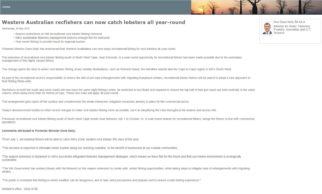While many fishers are understandably frustrated by the Fisheries’ Minister’s final decision on the future management of the west coast demersal fishery, it is clear we all need to do what we can to ensure better stewardship of these fish and to reduce fishing mortality.
For the overwhelming majority of recreational fishers who care about these iconic fish, this is simply the right thing to do – but it also will help to further speed up the recovery of the demersal fish stocks, potentially leading to a quicker relaxing of the fishing restrictions put in place.
Fishing mortality is the number of fish that die as a result of fishing – that does not just mean fish that end up in the esky, it also includes fish that expire because of barotrauma, bad handling, deep-hooking injuries and shark bite-off.
Recfishers already have a very strong track-record in looking after demersals. This includes supporting increased spawning closures for pink snapper in Cockburn Sound, initiating and supporting the compulsory use of release weights, forming the Snapper Guardians stocking program and playing our part in providing samples for DPIRD’s Send Us Your Skeletons program, to mention just a few examples.
Recfishwest is also preparing to launch the Dhufish Forever Alliance – a broad-based community alliance calling for and supporting better stewardship, better science and better management to result in a better future for west coast demersal fish.
For all of that though, we still need to do better collectively to reduce the number of fish dying as a result of fishing, because:
a) It’s the right thing to do and will help speed up the recovery rate; and
b) It will give us a better chance of seeing the current rules relaxed quicker – at the moment DPIRD scientists calculate that for every two dhufish released, one will die as a result of post-release mortality. If we can reduce the number of fish released through better fishing behaviour, the stocks will rebuild quicker, resulting in better fishing experiences.
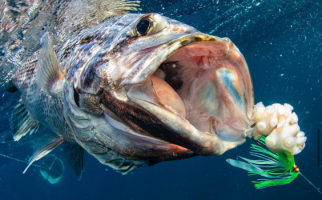
How can you do your bit?
Below are some of the things we should all be doing to cut down on the number of fish dying that you are not taking for the table.
Catch and release fishing for demersals is not OK
Demersals are particularly vulnerable to barotrauma, particularly when caught in depths greater than 30 metres. Research on dhufish shows a substantial proportion of fish caught at depths over 30m die when released, with survival rate decreasing the deeper the fish are caught.
And it’s not just barotrauma that can kill released fish – bad handling, deep-hooking and being preyed on by sharks before and after being caught and released – all takes its toll on fish numbers.
If you see or hear people bragging about the number of dhuies they caught and released in their session, perhaps have the conversation with them in a reasoned way. Accepting and understanding that demersals are not catch and release species is in everyone’s best interest.
Demersals should not be regarded as a sportfish. Once you’ve got what you need – and that doesn’t necessarily mean you have to fish up to your bag limit either – stop fishing for demersals and try your luck on other species.
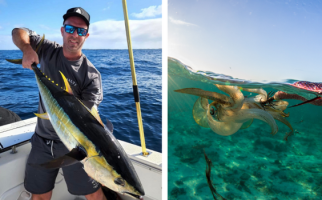
Switch your fishing
There are plenty of other options – troll for some tuna, jig for a Samson fish, target yellowtail kingfish around shallow reefs – come inshore with smaller baits for whiting or put a jig out for some tasty squid.
While dhuies and snapper have been the mainstay of recreational boat fishing for decades, there are many excellent options for catching a feed of fish along the west coast.
Use release weights to return demersal finfish species in water depths greater than 10m
A release weight – a simple device, pioneered by West Australian anglers, allows demersal finish to be returned to the depth they were caught from quickly, helping reduce the effects of barotrauma and assisting in recovery.
Legally, you have to have a release weight on board – but make sure they’re not just there for show. You can find our guide on how to use release weights here.
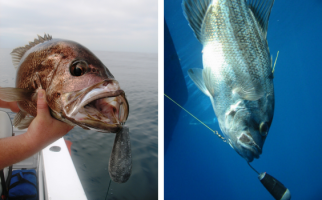
Handle with care and release unwanted fish quickly
Fish gills contain fragile blood vessels which can become easily damaged by human hands and excessive force. So, if you’re going to return a fish, avoid sticking your hands in behind the fish’s gill plates and keep your fingers away from their eyes.
Cradle the fish by placing your wet hands and forearm (if additional support is required) under its belly and supporting its body weight, with the other hand around the tail.
You also want to avoid placing the fish on a hot deck. If you can do it, keeping the fish in the water while unhooking and attaching a release weight is the best way. if however, you are going to bring the fish on board, you can either cradle your catch gently while unhooking or place the fish on a wet towel or brag mat.
Use a good pair of pliers to remove the hooks from the fish – if the fish is deep-hooked, cut the line off as close to the fish’s mouth as possible. Trying to get the hook out when a fish is deep-hooked can lead to fatal damage to its vital organs.
If you want to take a picture of your catch before releasing it, have your phone or your camera gear to hand and ready to go so a fish can be photographed and returned as quickly as possible with minimal fuss.
Click here to read Recfishwest’s correct fish handling practices
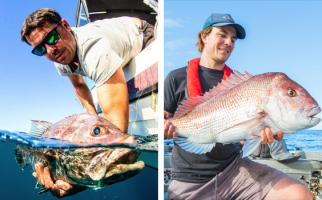
Look after the fish you’re keeping
A fish’s eating quality starts deteriorating from the moment it is caught, so dispatch it quickly and get it in an ice slurry to keep it fresh. These are prized fish, and we want to ensure the best possible eating quality is maintained.
Change up your spot if sharks are around
If you get ‘sharked’ once it is usually only going to go one way from there. Sharks are opportunistic predators and if they get a free feed of a big demersal species, they are going to stick around and attack any other fish that is hooked. Avoid giving the ‘taxman’ a free lunch at the expense of our demersal stocks – move spots.
Click here for the best tips on avoiding sharks from accomplished fishers and tackle store experts.
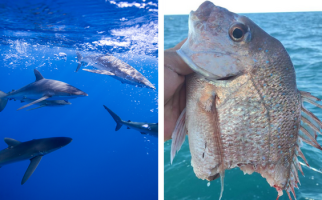
Working together to protect our image
If you’re already doing all of the things above, that’s great, but you can still play your part by encouraging friends, family, members of your fishing club or in your fishing social media forums to do the same.
If anything, the last few months have shown us we need to work together more as a community to protect these important fish – one of the practical ways you can do that is by engaging with other fishers and encouraging them to do the right thing as well.
With our way of life under increasing pressure from stringent fishery management rules, some conservationists’ and animal rights activists’ agendas, we also need to give some thought as to how our behaviour comes across to the wider community and other groups.
For example, while it may get some likes off your mates on Facebook, is hanging a bloody dhuie from your backyard washing line for a trophy shot a good look? Is that really respecting these fantastic fish that give us all so much pleasure and magic fishing experiences?
We are not talking about being the fun police here, everyone has the right to do what they want so long as it is within the boundary of the law.
However, we can all play a role in calling this kind of stuff out in a reasonable and reasoned manner as it could impact on all of our fishing experiences.
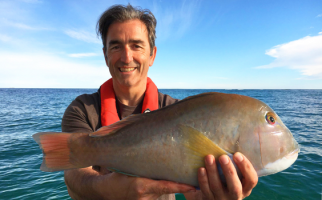
Banner image credit: Fishin’Wishin Life & Marco Fraschetti
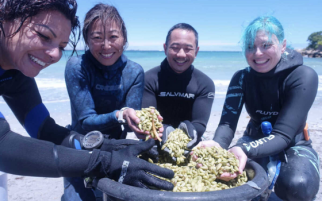
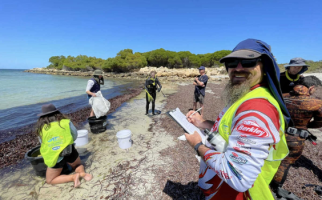
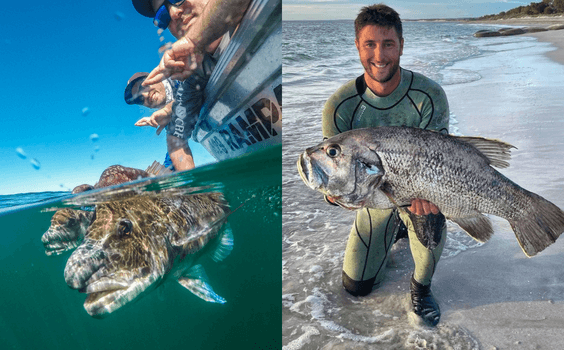
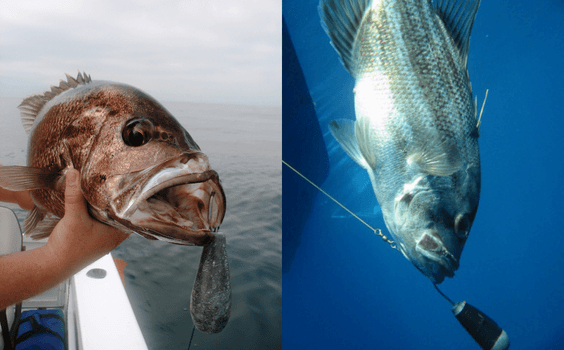
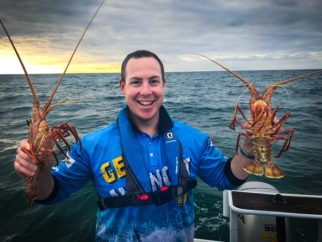
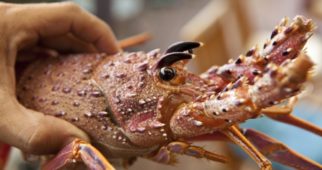 This announcement builds on other positive changes to recreational lobster rules over the past few years to ensure people’s fishing experiences are maximised and the rules are as simple and as practical as possible, including:
This announcement builds on other positive changes to recreational lobster rules over the past few years to ensure people’s fishing experiences are maximised and the rules are as simple and as practical as possible, including: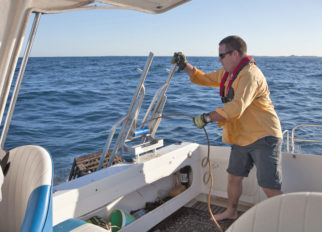 Recreational lobster pots will now have to be rigged in a similar fashion to commercial pots to mitigate the potential risk of interaction with migrating whales.
Recreational lobster pots will now have to be rigged in a similar fashion to commercial pots to mitigate the potential risk of interaction with migrating whales.